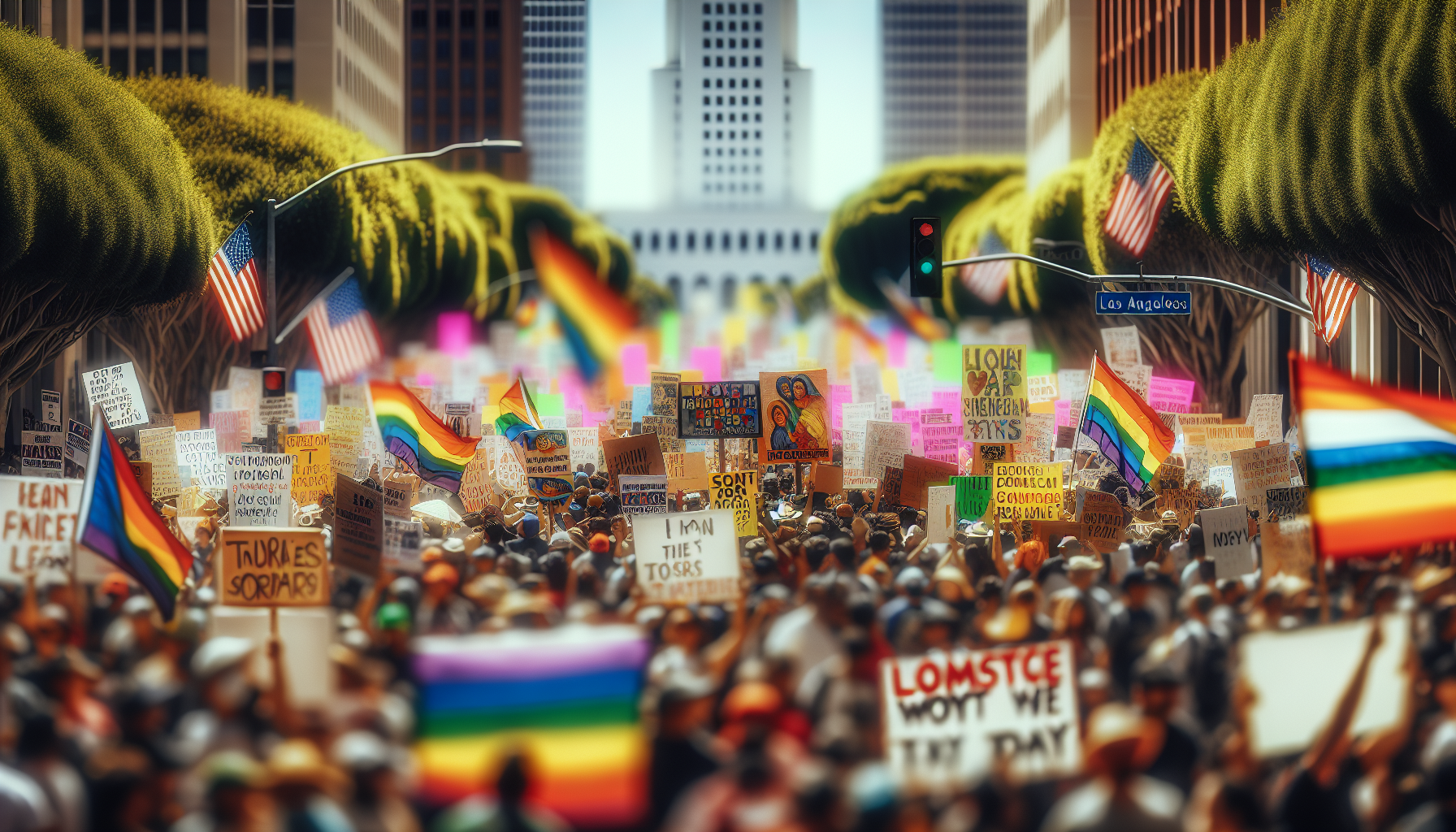Table of Contents
Background of the protests
In recent weeks, Los Angeles has witnessed a surge in protests against the U.S. Immigration and Customs Enforcement (ICE) activities. These demonstrations have been fueled by a series of arrests and enforcement actions that many locals view as aggressive and unjust. Activists argue that these actions are part of a broader agenda to instill fear within immigrant communities, particularly as the current administration pushes for stricter immigration policies.
On a Saturday that saw heightened tensions, protesters gathered outside a federal detention facility in Paramount, expressing their outrage through chants and signs. The atmosphere was charged as demonstrators confronted law enforcement, demanding an end to what they described as inhumane treatment of immigrants. The phrase “No Human Being is Illegal” echoed through the streets, encapsulating the sentiment of many who feel that the current immigration system is fundamentally flawed.
ICE’s response and community impact
In response to the protests, ICE deployed personnel in riot gear, further escalating the situation. The presence of law enforcement equipped with tear gas and other crowd control measures only intensified the feelings of fear and anger among community members. Los Angeles Mayor Karen Bass criticized ICE’s tactics, suggesting that the agency’s actions were designed to “sow terror” in the city. This statement reflects a growing divide between local government officials and federal immigration authorities, highlighting the complexities of immigration enforcement in urban areas.
As tensions mounted, the community rallied together, with many expressing solidarity with those detained. The protests served as a platform for voices advocating for immigrant rights, emphasizing the need for comprehensive immigration reform. Activists argue that the current enforcement practices disproportionately affect vulnerable populations, leading to family separations and community destabilization.
The future of immigration policy and community activism
The ongoing protests in Los Angeles are part of a larger national conversation about immigration policy and enforcement. As communities across the country grapple with similar issues, the actions taken by ICE and the responses from local governments will likely shape the future of immigration reform. Advocates for immigrant rights are calling for a reevaluation of current policies, urging lawmakers to prioritize humane treatment and pathways to citizenship for undocumented individuals.
As the situation continues to evolve, it is clear that the voices of young activists and community members will play a crucial role in shaping the narrative around immigration in the United States. The protests in Los Angeles are not just a reaction to current events; they represent a broader movement advocating for justice, equality, and the recognition of human rights for all individuals, regardless of their immigration status.


